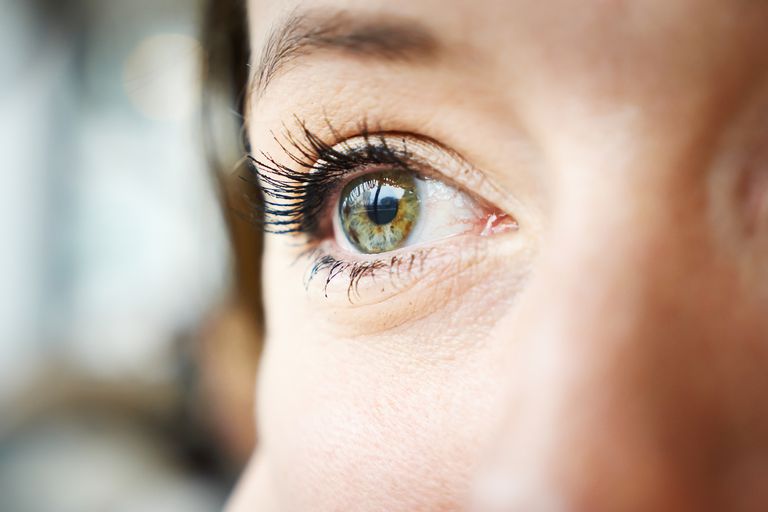Contents:
- Medical Video: How to treat dysphagia (swallowing difficulties)
- There are many types of dysphagia
- What causes difficulty swallowing due to dysphagia?
- 1. Oropharyngeal dysphagia (oral and pharynx)
- 2. Esophageal dysphagia
- How to prevent?
Medical Video: How to treat dysphagia (swallowing difficulties)
Difficulty swallowing food certainly makes eating and drinking so not delicious. In the medical world, this condition is called dysphagia. So, what are the causes of difficulty swallowing due to dysphagia? Check out the full review below.
There are many types of dysphagia
Everyone can experience dysphagia, but this is more common in infants and the elderly. Some people only need more time to swallow and move food from the mouth to the esophagus and then to the stomach. Others can't even swallow at all.
Dysphagia is divided into three types, namely oral dysphagia because of the weak tongue muscles, pharyngeal dysphagia because the throat muscles are problematic so they cannot push food into the stomach, and esophageal dysphagia because of the blockage or irritation of the esophagus.
Problems with difficulty swallowing due to dysphagia are not the same as pain when swallowing (odinophagia). Someone with dysphagia has difficulty swallowing food and feeling as if the food is stuck in the throat. Meanwhile, people who experience odinophagia can still swallow food, only accompanied by pain.
What causes difficulty swallowing due to dysphagia?
Basically, the problem of difficulty swallowing due to dysphagia is not something to worry about - if it is only experienced once or twice. Because usually, this happens if you eat too fast or don't chew food properly.
However, if you experience it for days and don't heal, you should immediately see a doctor. Because, this condition can indicate serious medical problems that require further treatment.
The causes of difficulty in swallowing are differentiated based on the type of dysfunction. Let's peel one by one.
1. Oropharyngeal dysphagia (oral and pharynx)
Oropharyngeal dysphagia is a combination of oral dysphagia and pharyngeal dysphagia. Someone with this type of dysphagia often experiences choking, vomiting, or coughing when trying to swallow. If not treated immediately, this can increase the risk of aspiration pneumonia when fluid or pieces of food enter the lungs.
The causes of oropharyngeal dysphagia include neurological disorders caused by multiple sclerosis, ALS, muscle weakness, Parkinson's disease, and stroke. In addition, some types of cancer and their treatment, such as esophageal cancer and radiation therapy, can make it difficult for you to swallow.
2. Esophageal dysphagia
Esophageal dysphagia makes you feel like there is food stuck in your throat or chest when you swallow. This condition can be caused by:
- Achalasia, that is disorders that make food and drinks difficult to move from mouth to stomach. This occurs because the sphincter or valve that is located between the esophagus and stomach is not open after food is swallowed.
- Esophageal spasm is a condition when contraction of the esophagus runs abnormally and sometimes too hard. As a result, food cannot enter the stomach and is instead trapped in the esophagus.
- Esophageal stricture is a condition of esophageal duct narrowing due to gastric acid reflux (GERD). As a result, food will be trapped in the esophagus and trigger a heat sensation when swallowing.
- Tumor or scar tissue that often caused by gastric acid reflux (GERD).
- Gastric Acid Reflux (GERD). Gastric acid that rises into the esophagus can lead to scarring and narrowing of the lower esophagus.
- Eosinophilic esophagitis, which is a condition caused by the growth of eosinophils (one type of white blood cell) that are excessive in the esophagus. This large amount of white blood cells can attack the digestive system, then cause vomiting and difficulty swallowing.
- Radiation therapy. The effects of exposure to light or radiation while undergoing cancer treatment can lead to scarring and inflammation of the esophagus. That is why, cancer patients often experience swallowing disorders.
How to prevent?
Problems with difficulty swallowing due to dysphagia are generally preventable. However, you can avoid various risk factors. One of them is by slowly chewing the food until it's really soft.
Also, make sure you do a regular health check to prevent the development of the disease as early as possible. If you have trouble swallowing that does not heal, immediately consult a doctor to find out the cause and treatment that is right for you.














